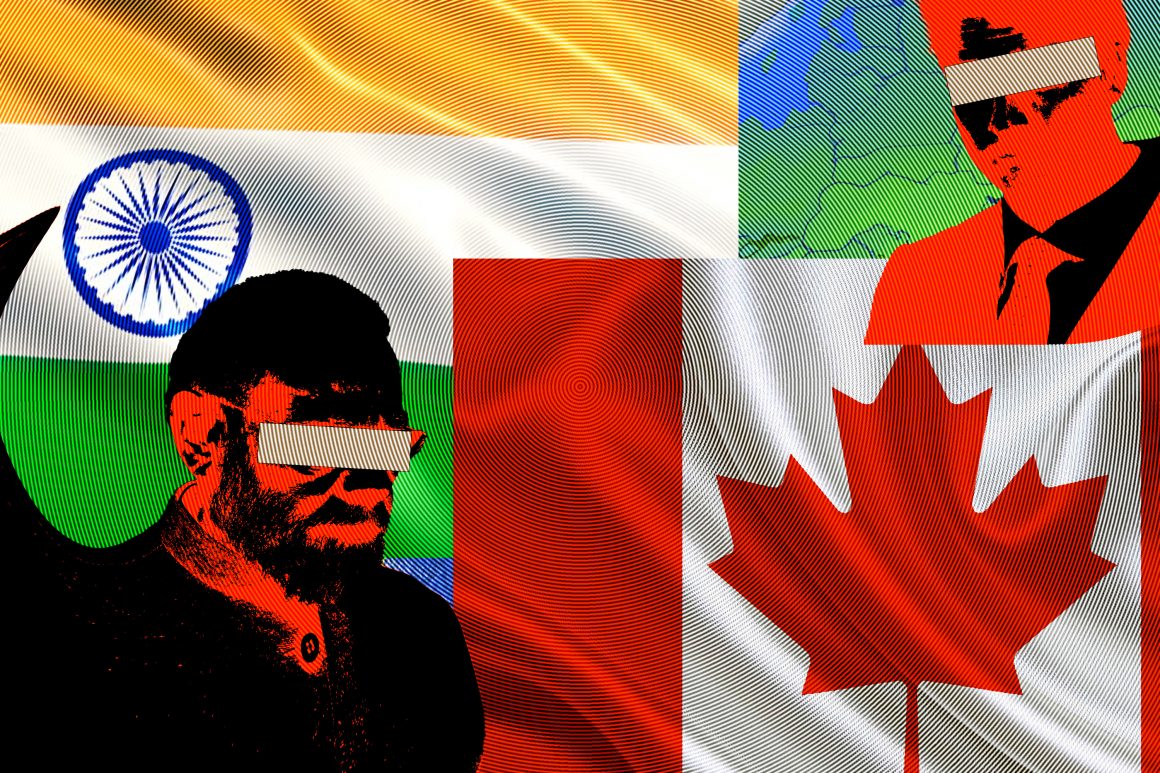
The Nijjar assassination: Reshaping the India-Khalistan debate in Canada
By Vama Saini, November 2 2023—
On a June evening in the parking lot of the Guru Nanak Sikh Gurdwara in Surrey, British Columbia, Hardeep Singh Nijjar, the leader of Khalistan Tiger Force, was tragically shot dead by two masked assailants. The Sikh community in Canada and across international borders swiftly took to the streets in protest, pointing fingers at the Indian government for their alleged involvement in Nijjar’s assassination.
In September, Prime Minister Justin Trudeau escalated tensions by publicly accusing India of complicity in Nijjar’s death, referencing “credible allegations” from Canadian intelligence, though no additional information was provided. The Indian government quickly denied involvement, dismissing the allegations as “absurd and motivated.” This accusation reignited the longstanding issue of Sikh groups advocating for Khalistan, a sovereign nation carved out of Punjab and governed by Sikh faith principles.
Sikhism, a minority religion originating in northern India in the 15th century, comprises less than two per cent of India’s population. However, in Punjab, Sikhs form nearly 60 per cent of the population. The historical region of Punjab witnessed severe violence during the Partition, with the split between Pakistan and India along religious lines fueling the demand for a separate Khalistan.
The separatist movement emerged as an armed rebellion in the 1980s, persisting for over a decade and met with an Indian government crackdown, resulting in thousands of casualties. The movement witnessed Operation Blue Star, where Indian forces stormed the Golden Temple, the holiest Sikh shrine in Amritsar, resulting in the loss of about 400 lives. This operation was followed by the assassination of Prime Minister Indira Gandhi, who had ordered the temple raid, by two of her Sikh bodyguards seeking revenge. This event triggered a wave of anti-Sikh riots across northern India, with the 1980s being characterized as a dangerous time for the Sikh minority of India.
Violent incidents associated with the Khalistan movement have extended beyond the borders of India. In 1985, the bombing of an Air India flight claimed the lives of all 329 passengers on board, making it the most devastating terrorist attack in Canadian history. Furthermore, in 1991, there was an attempted assassination of the Indian ambassador to Romania.
With a wave of Sikh immigration from India to countries like the United Kingdom (UK), Canada and Australia following Partition, the Khalistan movement garnered support among the Sikh diaspora. This diaspora has become a significant concern for the Indian government, given the increasing difficulty in managing the movement within its national borders. Consequently, they have urged countries, specifically Canada, which holds the largest Sikh population outside of India, to take action against Khalistani activists.
India has accused Khalistani supporters of the attack on the offices of the Indian High Commission in Ottawa, and the vandalizing of Hindu temples, illustrating Canada’s growing involvement in this matter. The Indian government’s decision to halt visas for Canadian citizens has worsened the strain, affecting trade discussions and diplomatic ties. Surprisingly, the escalating conflicts between Khalistani advocates and the Indian government have not been widely recognized by the global community.
While the intensity of violence within the Khalistan movement may have waned among the youth who did not witness the violence of the 1980s, recent events have signalled a revival.
The assassination of Nijjar, three years after India had designated him as a “terrorist,” has raised concerns among Sikh activists globally about their safety. Nijjar was a prominent Sikh leader in BC and a vocal backer of a separate Khalistani state. His supporters have said that he was a target because of his activism. The lack of arrests in connection with Nijjar’s murder has deepened these fears within the Sikh community.
In the UK, Avtar Singh Khanda, believed to lead the Khalistan Liberation Force, died under suspicious circumstances in Birmingham in June. In May, Paramjit Singh Panjwar, labelled a terrorist by India, was shot dead in Lahore, Pakistan’s Punjab capital. Sadly, these represent only a fraction of Sikh activists who allege state-sponsored violence by the Indian government.
Canada’s recognition of Nijjar’s assassination has brought attention to the India-Khalistan struggle, which is gaining traction within its own borders. Prioritizing the safety of all Indians in Canada, irrespective of their political affiliations, is crucial during these divisive times. Canada should concentrate on educating its wider population about the challenges faced by the 1.4 million Indian residents, along with actively engaging and advocating for the well-being of all Indians in Canada.
This article is a part of our Opinions section and does not necessarily reflect the views of the Gauntlet editorial board.
